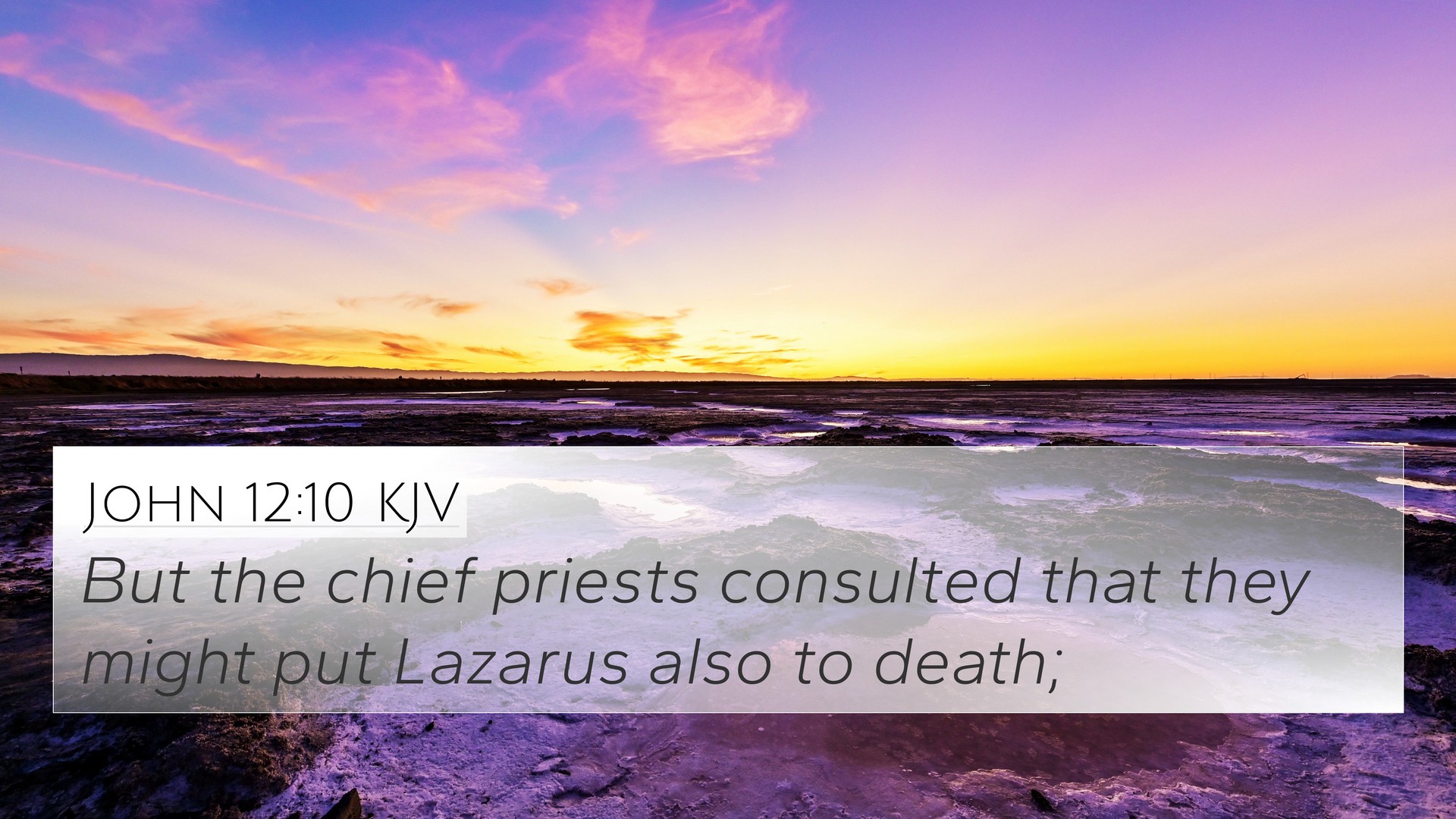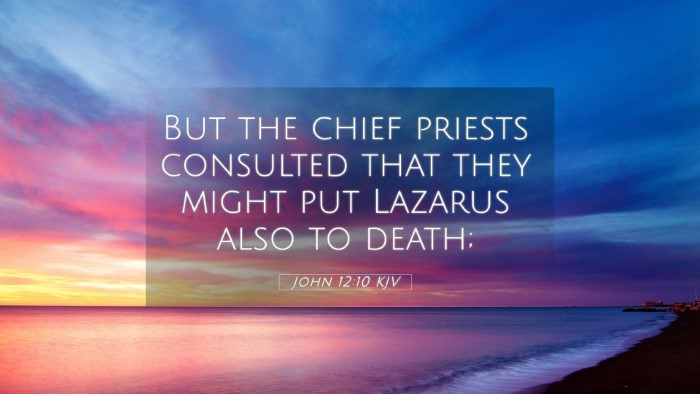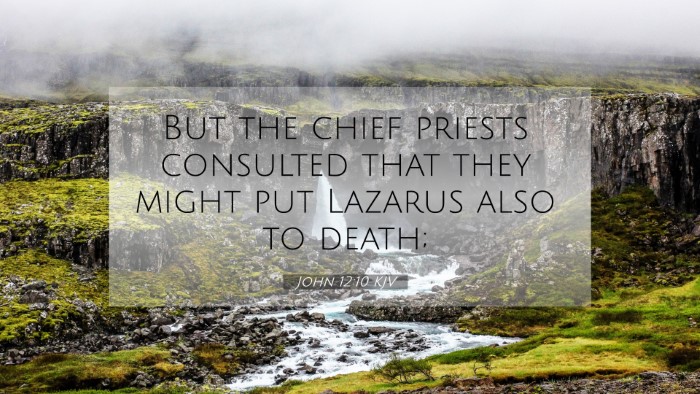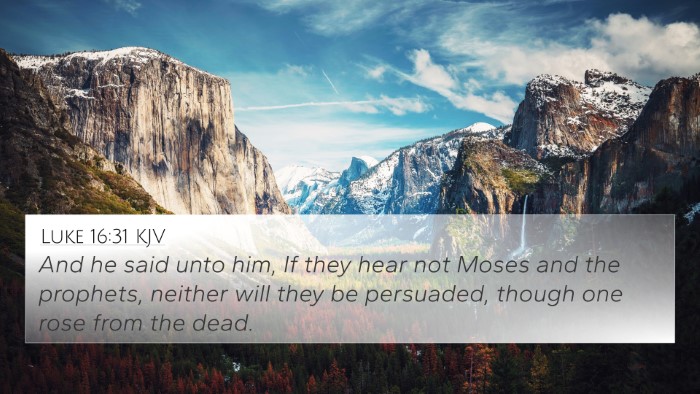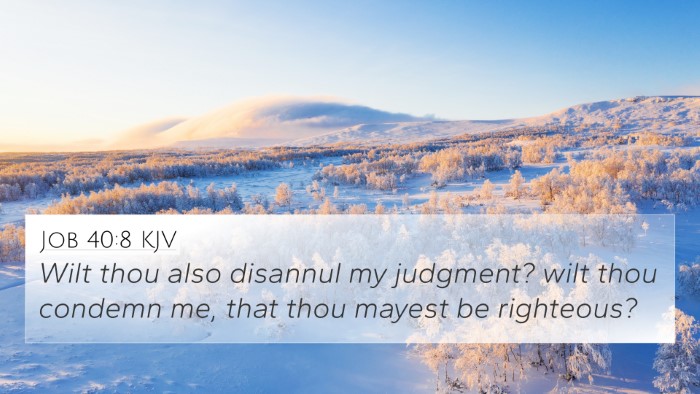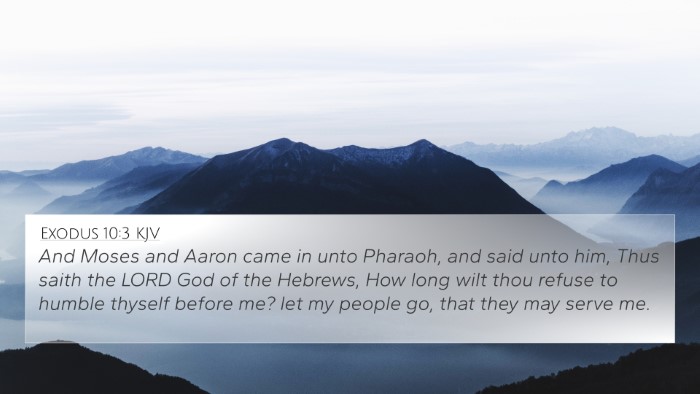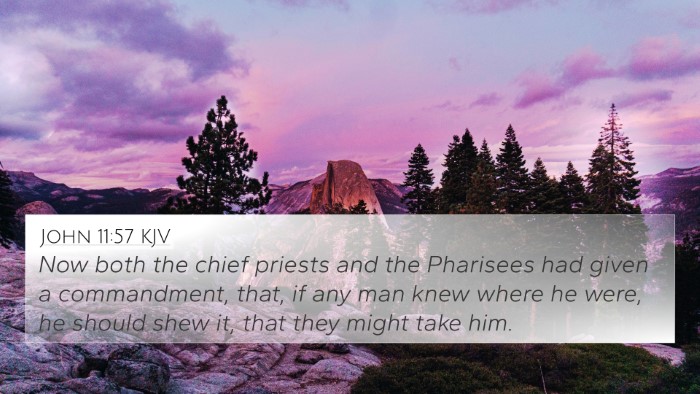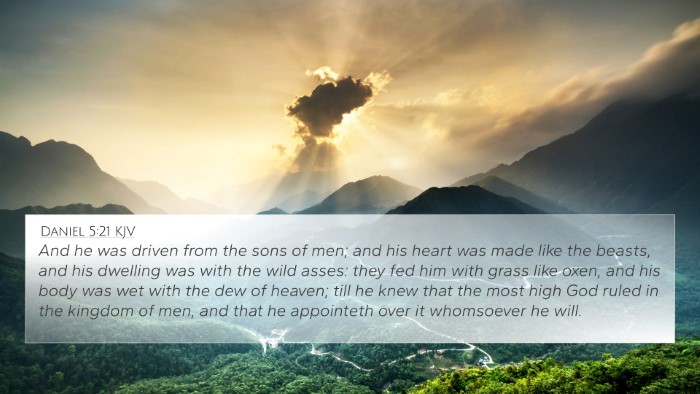Understanding John 12:10
John 12:10 states: "But the chief priests consulted that they might put Lazarus also to death." This verse captures a turning point in the Gospel of John, showcasing the dangerous tension between Jesus, the Jewish authorities, and the miracle of Lazarus’ resurrection.
Verse Meaning Summary
The incident of Lazarus not only reveals the power of Jesus over death but also incites a strong reaction from the religious leaders. Their desire to silence Lazarus reflects the broader conflict in the Gospels between the authority of Jesus and the established religious order.
Insights from Public Domain Commentaries
In reviewing commentaries, key themes emerge from Matthew Henry, Albert Barnes, and Adam Clarke regarding John 12:10:
- Matthew Henry: Henry emphasizes the significance of Lazarus’ resurrection as a proof of Jesus' divine power. He notes that the reactions of the chief priests stem from fear of losing their influence, as they cannot deny the miracle performed before the people.
- Albert Barnes: Barnes provides a pastoral touch, suggesting that the desire to kill Lazarus stems from a desperation to protect their standing and authority. His commentary links this goal to the fulfillment of prophecies regarding hostility towards Jesus.
- Adam Clarke: Clarke focuses on the implications of this plot against Lazarus. He states that this was consistent with the hostility Jesus faced, drawing parallels with other Scriptural accounts of persecution against those who witness the truth.
Cross-references for John 12:10
To enhance our understanding of John 12:10, we can look at the following scriptural cross-references:
- John 11:43-44: The account of Lazarus' resurrection.
- Matthew 26:3-4: The plotting of the chief priests against Jesus.
- Mark 14:1-2: A similar plotting by the religious authorities to arrest Jesus.
- Luke 19:47: The chief priests and scribes sought to destroy Jesus.
- Acts 4:1-3: The persecution faced by the apostles for preaching about Jesus and the resurrection.
- John 15:20: Jesus tells his disciples that they will face persecution as he did.
- Matthew 12:14: The Pharisees conspiring against Jesus after healing on the Sabbath.
Thematic Connections
Thematically, John 12:10 connects to broader discussions in the New Testament about resistance to Jesus and the themes of resurrection and new life:
- Death and Resurrection: The miracle of Lazarus highlights the Life Jesus brings, which the religious leaders seek to extinguish.
- Authority and Resistance: The ongoing struggle between earthly authority and divine influence is a central theme in the Bible, seen in the reactions to prophetic voices and miracles.
- Fear of Losing Control: The fear among religious leaders of losing influence resonates with other biblical accounts where established powers react violently to the truth.
Practical Applications
Understanding this verse within its context allows for practical applications in the lives of believers today:
- Recognizing the authenticity of faith in the face of opposition.
- Embracing the miracle of new life found in Christ.
- Understanding the cost of discipleship in a world often resistant to God's truth.
Conclusion
John 12:10 serves as a pivotal reference point within the Gospels, illustrating the consequences of powerful spiritual awakenings and the desperate lengths to which established authority might go to resist them. Through cross-referencing and thematic analysis, believers can gain rich insights into this passage, fostering a deeper understanding of scripture and its implications for faith.
